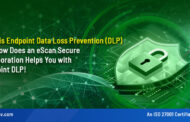Did you ever encounter issues in your PC even after having anti-virus software installed in it? And later you realize that it is not a legitimate antivirus software and just a fake application? Chances are you have installed a Trojan-Horse.
Being in a rush to provide security to your infected computer often takes you to fake anti-virus websites that are infected with malware. On visiting these websites, you may be prompted with a pop-up message informing you that your PC might be at risk or is infected.
Fake anti-virus program is a popular way for malicious hackers to make money from unsuspecting internet users. This malicious program warms the user about a security threat on their PC’s and that the user must scan his/her system. Once the user clicks on the scan button in order to quickly remove the infection, he/she inadvertently installs the Trojan-Horse.
To influence an innocent user into installing the software, hackers use a variety of methods which includes spam emails, compromised websites and search engine optimization.
Interestingly, hackers use a variety of names for their malicious program, to make it appear genuine. These names include: AntiSpywarePro, Malware Defense, Antivirus XP, Antivirus Plus, XP Antivirus and many more.
Through emails, hackers send spam email and messages through social networking websites to influence the recipient to open the attachment. These attachments may contain malicious links or may be executable files, wherein the user would invariably get infected. Moreover, hackers use search engine optimization to lure users by creating pages related to common search terms which they design in such a way that it appears high in search engine results. Furthermore, users unknowingly visit fake anti-virus web pages where they encounter warnings about infection and then they are persuaded to purchase the fake anti-virus. Such fake antivirus programs can cause a lot of harm to your computer. They can infect your computer with Malware, steal personal information, or corrupt files on your computer.
As, hackers are continuously looking for new and improved ways to influence victims online, one of the best ways to protect your personal data and your money from the cybercriminals is to remain aware and vigilant. Hence, you should never take any action on any of these deceptive messages displaying on these websites.
eScan suggests you few tips to protect yourself from becoming the next victim of scammers, identity thieves and hackers.
- Enable firewall in your computer system to ensure you are secure on local networks and the Internet.
- Update your system with the latest antivirus software such as eScan Internet Security Suite with Cloud Security that provides enhanced protection against evolving internet threats.
- Before installing any program or software do through research about the reputability of the company that is selling the program or software.
- Do not open an email attachment sent from an unknown sender, open it only if you are positive about the source.
- Avoid clicking on any pop-up that appears on anti-virus or anti-spyware software, especially pop-ups which informs you about your systems security issues.
- Before downloading any freeware or shareware programs do a deep research because these software and program often brings in spyware, adware or fake anti-virus programs.
- There are few websites that automatically download Malware onto your computer, beware of such questionable websites. Hence to mitigate such attacks, presence of an Antivirus is a must.
- Keep your computer’s security settings to a higher level. Configure your computer’s AV settings to perform automatic system updates.
- Even if you’re installing antivirus software from a reputed company, read up and research on the software before installation so that you can save yourself from trouble down the line.





4 Comments
Optimo Defender Anti-Malware Mobile
I find great interest while reading this article… I like this article of fake antivirus securing computer… really some fresh piece of information you have shared..:)
Peter_Thompson.
I think most of virus we receive nowadays is through emails and unwanted popups. Therefore using a good antivirus software is certainly an important requirement. Can you please tell me the difference between a fake and a free antivirus software? Are they same?
Nehan Shaikh
No they are not the same.
All free Anti-Virus software are not fake but all fake Anti-Virus Software pose a threat to your computer’s security.
So, before installing any program or software it is very important to do a through research about the reputability of the company that is selling the program or software also conduct a background check on various forums via search engines to understand the problems faced by the customers of that site before installing any program or software.
To see if your system is infected or not, use the free eScan tool kit from here http://www.escanav.com/english/content/products/MWAV/escan_mwav.asp
leadership coaching
Hi, yup this article is in fact good and I have learned
lot of things from it about blogging. thanks.
Stop by my web-site – leadership coaching